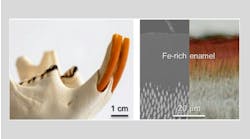By Andy Jensen
Vice President of Marketing
Curve Dental, Inc.In early January of this year, I received an unusual request from the editorial team at DentistryIQ.com, who asked if I would be willing to research and write an opinion article concerning the coming zombie apocalypse. I found the request strange, as you might expect, because until such time that the zombie myth can be proven anything but myth, I’ll continue to perceive zombies as a fun tale to tell. I can only surmise that I was specifically asked to author such a bizarre paper due to my being a strong advocate of web-based dental software, which topic, when placed within the confines of any catastrophe, zombie or otherwise, provides fundamental advantages over traditional client-server software.Adding to the peculiarity of this assignment is the title of the article, which conveys urgency and stating as fact that a zombie apocalypse is both a sure thing and imminent. I immediately set out to challenge these statements. I commenced a quick Google search of the key phrase, “U.S. government zombie apocalypse plan,” and was taken aback by the results. The first item to appear in the search results is information prepared and posted by the Centers for Disease Control and Prevention (CDC), a federal entity, that describes what to expect and how to prepare for the coming zombie apocalypse (see http://blogs.cdc.gov/publichealthmatters/2011/05/preparedness-101-zombie-apocalypse/). The CDC emphasizes mobility in the information they provide, which I will cover in more detail shortly. As you read on, you discover the CDC used the currently popular topic of zombies to garner attention to their recommendation that every family be prepared for emergencies. Being prepared for any emergency is good advice. And it appears the CDC doesn’t really care if the need for a backpack full of emergency essentials is due to zombies or earthquakes.Further down the list is a news article quoting Rear Admiral Ali S. Khan, assistant surgeon general and director of the Office of Public Health Preparedness and Response (see http://blogs.cdc.gov/publichealthmatters/2011/05/preparedness-101-zombie-apocalypse/) “The rise of zombies in pop culture has given credence to the idea that a zombie apocalypse could happen. In such a scenario, zombies would take over entire countries, roaming city streets, eating anything living that got in their way. The proliferation of this idea has led many people to wonder ‘How do I prepare for a zombie apocalypse?’” says Admiral Khan. When pressed further to describe the U.S. government’s preparations, Admiral Khan stated he was not at liberty to discuss what he called “secret plans” to handle the apocalypse.In Florida, Okeechobee County has an official zombie apocalypse emergency plan (see http://www.okeechobeeeoc.com/Annex%20Z.pdf), which details how the county’s various teams, from the sheriff’s department to the chamber of commerce, will deal with the event. Other municipalities have followed suit; the City of Wellington created the Zombie Apocalypse Plan, otherwise known as ZAP. Says Council spokesman Richard MacLean, “…a proven method to eliminate a zombie is to hurl a vinyl LP at its head so that it pierces the skull.” (See http://www.stuff.co.nz/dominion-post/news/5179942/Wellingtons-zombie-apocalypse-plan.) Really? Zombies?Apparently, the notion is not as outlandish as one may think. T.E. Sloth and David Wong summarize the science behind the threat (see http://www.cracked.com/article_15643_5-scientific-reasons-zombie-apocalypse-could-actually-happen.html). According to Sloth and Wong, scientists have identified five plausible ways wherein zombies could be roaming our streets:1. Brain parasites. Think mad cow disease with this one and you can imagine people running around with behavior akin to zombies.2. Neurotoxins. According to the authors, certain types of poisons slow bodily functions to the point that you could be declared dead. Victims are then brought back under drugs that leave them in a trancelike state. 3. Virus. A manufactured or naturally altered virus, released into society by a rogue terrorist group, could alter human behavior to a zombie level.4. Neurogenesis. The science of regenerating dead cells by using technology developed through the exploration of stem cells is gaining ground, apparently. So imagine injecting a serum into a corpse that would allow you to regenerate certain organs, like the heart and lungs.5. Nanobots. These microscopic, self-replicating robots, in this instance, would first kill a host and then manipulate the host’s movements by way of electrical stimulus to the nerves.In essence, Sloth and Wong submit for consideration that a zombie apocalypse is only slightly less plausible than other types of popularly accepted apocalypses, such as a nuclear or viral apocalypse. Of course, Sloth, Wong, and a host of other zombie doomsday forecasters are not without their detractors. Certainly, for every zombie enthusiast, hundreds, if not thousands, scoff at the mention of a coming zombie apocalypse, calling it absurd. Were I to take a guess, nearly every reader of this article is of the “scoff” and “absurd” category. But, the topic is fun and, as mentioned earlier, zombies have come on strong lately in the pop culture scene. That being said, every dentist can benefit from taking a few moments of light reading to assess their own readiness in the face of disaster, whether they face danger from fire, theft, flood, wind, or mad zombies. And in that spirit, let us continue to discuss the coming zombie apocalypse.Due to Hollywood’s recent efforts to bring zombies to prime time television, some clarification and logical assumptions are necessary before this discussion can be carried any further. The first of these is that the zombie apocalypse will not forever alter the current social framework. While millions will die, and millions more will mourn for lost fathers, mothers, brothers, and sisters, a cure will be found and post-apocalyptic society will not be too much different from pre-apocalyptic times. While a cure will be found, even so, the world’s brightest pathologists will require time to discover, develop, and perfect a cure. During that time, society will push forward as best they can in safe zones established by the government or enterprising private organizations and individuals. Babies will still be born. The IRS will still collect taxes. And dentists and their teams will still be necessary to advance the cause of good oral health. One key attribute of every potential surviving dentist will be their ability to be quick on their feet. Being able to evacuate to a safe zone in a most expeditious manner is critical. Doctors who have ignored the many warnings of impending doom and who have glossed over the many benefits of the cloud will be at a great disadvantage. Traditional client-server software will be an anchor around their necks when the first orders for evacuation are given. These poor souls will still be trying to pull cables and fit their servers in the trunks of their cars when the first wave of zombies ambles around the block, looking for fresh meat. Alas, they will either become infected themselves or serve as another main course for the zombie hordes.On the other hand, doctors who have moved their practices to the cloud will simply usher their families to their waiting minivans and proceed directly to the nearest safe zone. Given the known fact that every safe zone is equipped with computers and Internet access, these doctors will need nothing more. They will simply access a computer, enter a username and password, and gain immediate access to all of their patients’ data. Sadly, much of their time will be spent changing many a patient’s status from active to deceased, or they will create a new status labeled “zombie.” A side note here: The apocalypse will increase the ratio of patients per dentist for the very reason discussed earlier. Many dentists will fall victim to the zombie stampede while trying to remove servers from their practices. Surviving doctors will find they will need to maximize efficiency when treating patients in the safe zone in order to keep up with the number of patients seeking treatment. Fortunately for them, web-based dental software that has been designed for a web interface will typically allow the doctor to enter information faster than with traditional client-server software.Random fate will save the lives of a handful of doctors who were using client-server software when doom set into their communities. For whatever reason, they were able to lug their servers to their cars and they were able to reach a safe zone before the gates were sealed. These doctors will seek the help of experienced IT professionals to help them access the data on their servers. Unfortunately, one of the quirky ripple effects of the zombie apocalypse is that IT pros will be difficult to find. And even if you were able to meet one in the safe zone, their time would be prioritized to maintaining the existing infrastructure within the safe zone. As a result, many of these doctors will be forced to power up their servers on their own and muddle through the setup or restore process on their own. Those who succeed will be unable to connect workstations to their server due to a scarce supply of hardware capable of running their dental software or because they forgot to bring installation disks with them. Unfortunately, these doctors will spend more time working with their servers to access patient information than with their families who may be traumatized and in need of comfort. The long-term effects of this trauma, if not immediately addressed, will lead to tens of thousands who will suffer from the effects of PTSD.The role of IT professionals during the zombie apocalypse is an interesting discussion. The governments will declare a state of emergency, which will allow them to suspend all civil liberties and direct and control commerce and transportation as deemed necessary. As a result, governments will order IT professionals to data centers across the country to maintain these facilities. While many of these facilities lie outside safe zones, strong perimeter security, which is standard protocol for most professionally managed data centers, will prevent zombies from entering the facilities.Web-based dental software companies will have a leg up on their competition. From any safe zone they will be able to continue development on the software. New features will be required to accommodate the consequences of a new reality. Patient addresses will become, for a season, unimportant; instead, doctors will want to be able to designate in which safe zone a current patient resides, and to what living pod the patient has been assigned within that safe zone. Changes to the software can be made quickly to account for these social changes. Because the software is web-based, dentists don’t worry about installing updates and then tweaking their systems to work with the new upgrade.Another benefit to the doctor using the cloud is they won’t have to worry about data backup and protection. With the cloud, their data is housed in a professional data center managed by experienced IT professionals. Safe zones will be crowded and busy places. Doctors who were able to evacuate to safe zones with their servers and workstations will be under constant watch to make sure the hardware is not kicked or disrupted by the congestion of people, animals, and vehicles. They will also have to figure out how to back up their data and maintain security over that backup at all times. Given the massive disruption and instability the apocalypse will bring to society, certainly the last thing any dentist will want to worry about is data backup.Training won’t be a concern for the doctor on the cloud. Videos and a knowledge base will provide them with the information they may need to solve a particular problem or to train a replacement team member (sadly, not every member of your team will make it to the safe zone). Technical support will continue as well. The cloud-based doctor will be able to submit support tickets within the application and receive the assistance they may require via e-mail, if telephone service is unavailable.In a nutshell, a web-based application provides the doctor with an immediate and dependable business continuity solution in the event of a natural disaster or apocalyptic event similar to the forgoing. Doctors and staff can learn more about a real life business continuity case study by visiting http://www.curvedental.com/zombies. Although this case doesn’t involve zombies, it does illustrate the inherent advantages of web-based dental software over traditional client-server software with regard to business continuity.
Vice President of Marketing
Curve Dental, Inc.In early January of this year, I received an unusual request from the editorial team at DentistryIQ.com, who asked if I would be willing to research and write an opinion article concerning the coming zombie apocalypse. I found the request strange, as you might expect, because until such time that the zombie myth can be proven anything but myth, I’ll continue to perceive zombies as a fun tale to tell. I can only surmise that I was specifically asked to author such a bizarre paper due to my being a strong advocate of web-based dental software, which topic, when placed within the confines of any catastrophe, zombie or otherwise, provides fundamental advantages over traditional client-server software.Adding to the peculiarity of this assignment is the title of the article, which conveys urgency and stating as fact that a zombie apocalypse is both a sure thing and imminent. I immediately set out to challenge these statements. I commenced a quick Google search of the key phrase, “U.S. government zombie apocalypse plan,” and was taken aback by the results. The first item to appear in the search results is information prepared and posted by the Centers for Disease Control and Prevention (CDC), a federal entity, that describes what to expect and how to prepare for the coming zombie apocalypse (see http://blogs.cdc.gov/publichealthmatters/2011/05/preparedness-101-zombie-apocalypse/). The CDC emphasizes mobility in the information they provide, which I will cover in more detail shortly. As you read on, you discover the CDC used the currently popular topic of zombies to garner attention to their recommendation that every family be prepared for emergencies. Being prepared for any emergency is good advice. And it appears the CDC doesn’t really care if the need for a backpack full of emergency essentials is due to zombies or earthquakes.Further down the list is a news article quoting Rear Admiral Ali S. Khan, assistant surgeon general and director of the Office of Public Health Preparedness and Response (see http://blogs.cdc.gov/publichealthmatters/2011/05/preparedness-101-zombie-apocalypse/) “The rise of zombies in pop culture has given credence to the idea that a zombie apocalypse could happen. In such a scenario, zombies would take over entire countries, roaming city streets, eating anything living that got in their way. The proliferation of this idea has led many people to wonder ‘How do I prepare for a zombie apocalypse?’” says Admiral Khan. When pressed further to describe the U.S. government’s preparations, Admiral Khan stated he was not at liberty to discuss what he called “secret plans” to handle the apocalypse.In Florida, Okeechobee County has an official zombie apocalypse emergency plan (see http://www.okeechobeeeoc.com/Annex%20Z.pdf), which details how the county’s various teams, from the sheriff’s department to the chamber of commerce, will deal with the event. Other municipalities have followed suit; the City of Wellington created the Zombie Apocalypse Plan, otherwise known as ZAP. Says Council spokesman Richard MacLean, “…a proven method to eliminate a zombie is to hurl a vinyl LP at its head so that it pierces the skull.” (See http://www.stuff.co.nz/dominion-post/news/5179942/Wellingtons-zombie-apocalypse-plan.) Really? Zombies?Apparently, the notion is not as outlandish as one may think. T.E. Sloth and David Wong summarize the science behind the threat (see http://www.cracked.com/article_15643_5-scientific-reasons-zombie-apocalypse-could-actually-happen.html). According to Sloth and Wong, scientists have identified five plausible ways wherein zombies could be roaming our streets:1. Brain parasites. Think mad cow disease with this one and you can imagine people running around with behavior akin to zombies.2. Neurotoxins. According to the authors, certain types of poisons slow bodily functions to the point that you could be declared dead. Victims are then brought back under drugs that leave them in a trancelike state. 3. Virus. A manufactured or naturally altered virus, released into society by a rogue terrorist group, could alter human behavior to a zombie level.4. Neurogenesis. The science of regenerating dead cells by using technology developed through the exploration of stem cells is gaining ground, apparently. So imagine injecting a serum into a corpse that would allow you to regenerate certain organs, like the heart and lungs.5. Nanobots. These microscopic, self-replicating robots, in this instance, would first kill a host and then manipulate the host’s movements by way of electrical stimulus to the nerves.In essence, Sloth and Wong submit for consideration that a zombie apocalypse is only slightly less plausible than other types of popularly accepted apocalypses, such as a nuclear or viral apocalypse. Of course, Sloth, Wong, and a host of other zombie doomsday forecasters are not without their detractors. Certainly, for every zombie enthusiast, hundreds, if not thousands, scoff at the mention of a coming zombie apocalypse, calling it absurd. Were I to take a guess, nearly every reader of this article is of the “scoff” and “absurd” category. But, the topic is fun and, as mentioned earlier, zombies have come on strong lately in the pop culture scene. That being said, every dentist can benefit from taking a few moments of light reading to assess their own readiness in the face of disaster, whether they face danger from fire, theft, flood, wind, or mad zombies. And in that spirit, let us continue to discuss the coming zombie apocalypse.Due to Hollywood’s recent efforts to bring zombies to prime time television, some clarification and logical assumptions are necessary before this discussion can be carried any further. The first of these is that the zombie apocalypse will not forever alter the current social framework. While millions will die, and millions more will mourn for lost fathers, mothers, brothers, and sisters, a cure will be found and post-apocalyptic society will not be too much different from pre-apocalyptic times. While a cure will be found, even so, the world’s brightest pathologists will require time to discover, develop, and perfect a cure. During that time, society will push forward as best they can in safe zones established by the government or enterprising private organizations and individuals. Babies will still be born. The IRS will still collect taxes. And dentists and their teams will still be necessary to advance the cause of good oral health. One key attribute of every potential surviving dentist will be their ability to be quick on their feet. Being able to evacuate to a safe zone in a most expeditious manner is critical. Doctors who have ignored the many warnings of impending doom and who have glossed over the many benefits of the cloud will be at a great disadvantage. Traditional client-server software will be an anchor around their necks when the first orders for evacuation are given. These poor souls will still be trying to pull cables and fit their servers in the trunks of their cars when the first wave of zombies ambles around the block, looking for fresh meat. Alas, they will either become infected themselves or serve as another main course for the zombie hordes.On the other hand, doctors who have moved their practices to the cloud will simply usher their families to their waiting minivans and proceed directly to the nearest safe zone. Given the known fact that every safe zone is equipped with computers and Internet access, these doctors will need nothing more. They will simply access a computer, enter a username and password, and gain immediate access to all of their patients’ data. Sadly, much of their time will be spent changing many a patient’s status from active to deceased, or they will create a new status labeled “zombie.” A side note here: The apocalypse will increase the ratio of patients per dentist for the very reason discussed earlier. Many dentists will fall victim to the zombie stampede while trying to remove servers from their practices. Surviving doctors will find they will need to maximize efficiency when treating patients in the safe zone in order to keep up with the number of patients seeking treatment. Fortunately for them, web-based dental software that has been designed for a web interface will typically allow the doctor to enter information faster than with traditional client-server software.Random fate will save the lives of a handful of doctors who were using client-server software when doom set into their communities. For whatever reason, they were able to lug their servers to their cars and they were able to reach a safe zone before the gates were sealed. These doctors will seek the help of experienced IT professionals to help them access the data on their servers. Unfortunately, one of the quirky ripple effects of the zombie apocalypse is that IT pros will be difficult to find. And even if you were able to meet one in the safe zone, their time would be prioritized to maintaining the existing infrastructure within the safe zone. As a result, many of these doctors will be forced to power up their servers on their own and muddle through the setup or restore process on their own. Those who succeed will be unable to connect workstations to their server due to a scarce supply of hardware capable of running their dental software or because they forgot to bring installation disks with them. Unfortunately, these doctors will spend more time working with their servers to access patient information than with their families who may be traumatized and in need of comfort. The long-term effects of this trauma, if not immediately addressed, will lead to tens of thousands who will suffer from the effects of PTSD.The role of IT professionals during the zombie apocalypse is an interesting discussion. The governments will declare a state of emergency, which will allow them to suspend all civil liberties and direct and control commerce and transportation as deemed necessary. As a result, governments will order IT professionals to data centers across the country to maintain these facilities. While many of these facilities lie outside safe zones, strong perimeter security, which is standard protocol for most professionally managed data centers, will prevent zombies from entering the facilities.Web-based dental software companies will have a leg up on their competition. From any safe zone they will be able to continue development on the software. New features will be required to accommodate the consequences of a new reality. Patient addresses will become, for a season, unimportant; instead, doctors will want to be able to designate in which safe zone a current patient resides, and to what living pod the patient has been assigned within that safe zone. Changes to the software can be made quickly to account for these social changes. Because the software is web-based, dentists don’t worry about installing updates and then tweaking their systems to work with the new upgrade.Another benefit to the doctor using the cloud is they won’t have to worry about data backup and protection. With the cloud, their data is housed in a professional data center managed by experienced IT professionals. Safe zones will be crowded and busy places. Doctors who were able to evacuate to safe zones with their servers and workstations will be under constant watch to make sure the hardware is not kicked or disrupted by the congestion of people, animals, and vehicles. They will also have to figure out how to back up their data and maintain security over that backup at all times. Given the massive disruption and instability the apocalypse will bring to society, certainly the last thing any dentist will want to worry about is data backup.Training won’t be a concern for the doctor on the cloud. Videos and a knowledge base will provide them with the information they may need to solve a particular problem or to train a replacement team member (sadly, not every member of your team will make it to the safe zone). Technical support will continue as well. The cloud-based doctor will be able to submit support tickets within the application and receive the assistance they may require via e-mail, if telephone service is unavailable.In a nutshell, a web-based application provides the doctor with an immediate and dependable business continuity solution in the event of a natural disaster or apocalyptic event similar to the forgoing. Doctors and staff can learn more about a real life business continuity case study by visiting http://www.curvedental.com/zombies. Although this case doesn’t involve zombies, it does illustrate the inherent advantages of web-based dental software over traditional client-server software with regard to business continuity.
Note: The author wishes to express appreciation to Mitchell Jensen, a self-described scholar and researcher of the coming zombie apocalypse, for his review of this article and his kind recommendations.Andy Jensen is the vice president of marketing for Curve Dental. You can find out more about Curve by visiting www.curvedental.com. You can reach Andy by email by clicking here.







